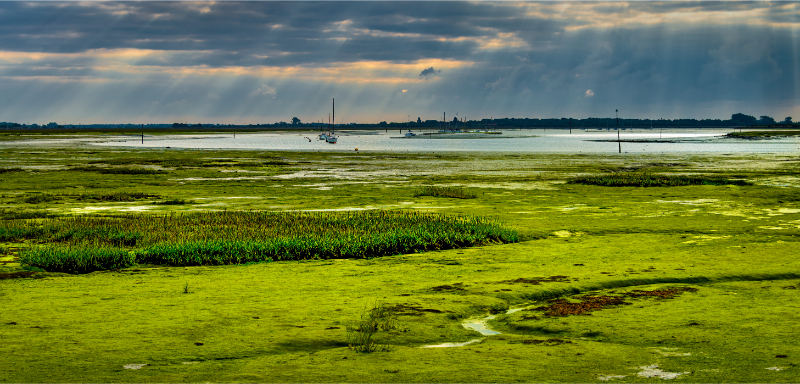Research published this week by environmental scientists from three universities has once again highlighted serious concerns about water pollution in Chichester Harbour.
The study comes from scientists at Brunel University of London, the University of Portsmouth and Imperial College London – working alongside citizen scientists from the Clean Harbours Partnership.
Their investigation, published in the Journal Environment International, identified 105 unique pharmaceuticals, pesticides and illegal drugs found across their samples taken from Sites of Special Scientific Interest in Chichester and Langstone Harbours during the spring and autumn of 2022.
Another red flag for water pollution
Noting the study, Matt Briers, CEO of Chichester Harbour Conservancy said, “The environmental state of Chichester Harbour remains of huge concern. The effects of pollution and habitat decline have been well-publicised and this recent research raises yet another red flag over contaminants of emerging concern adversely affecting the ecological health of the harbour.”
In particular, the research highlighted a spike in the concentration of chemicals following wet weather which resulted in combined sewer overflows (CSOs) into the harbour. Whilst Southern Water has commenced programmes to reduce overflows into the harbour, CSOs remain a great concern.
Matt Briers said, “The Conservancy supports research to understand the challenges of chemicals and pharmaceuticals in the harbour. However, we cannot wait for absolute understanding before we act. The damaging and persistent nature of the chemicals involved mean we need to act now! I shall be pressing Southern Water to up their game in this area, potentially through investment in combined biological membrane filtration and ultrasound treatment processes to better protect our harbour.”
Importance of academic research
Water quality is a complex issue with multiple factors affecting the water entering the harbour. These include the capacity and effectiveness of waste water treatment works, agriculture, highways, boating and other harbour user activities. The green swathes of macroalgae weed across the harbour’s mudflats in the summer are a visual representation of the excess nutrients in the water, but other threats also potentially lurk in our waters in the form of chemical, pharmaceutical and microplastic pollution which are less-noticeable to the eye.
Chichester Harbour Conservancy supports the importance of academic research to fully understand the sources and impacts of contaminants effecting the health of the harbour. The Conservancy actively works with universities to help increase understanding on how different contaminants are impacting on marine life, harbour ecosystems and the sources of these pollutants.
The Conservancy was a partner in the Interreg Redpol research project launched in 2020. The study looked at new approaches to assessing safe levels for endocrine-disrupting chemicals in European waters. These chemicals can be found in substances such as pesticides, plastic additives, cosmetics, and industrial waste. They have the potential to interfere with hormones, resulting in abnormal development, growth and function. When present in the water they are potentially harmful for marine life and can accumulate within the food chain. The research highlighted the urgent need for better measures to protect against the release of these chemicals into waterways and the environment.
In September 2024, Chichester Harbour Conservancy hosted Defra officials from the Water Environment and Public Health Policy division working on the UK ‘Future Water Framework’. We provided a briefing on the unique and complex challenges facing Chichester Harbour and shared research data for consideration in the development of a revised UK Water Framework.
We continue to support research programmes including partnering with Brighton University helping to facilitate further research into microplastics and co-funding a PhD to investigate the causes of environmental degradation in important coastal habitats such as seagrass and oyster beds.
Improving water quality
The Chichester Harbour Action Summit established in 2021 and currently chaired by Matt Briers, CEO of Chichester Harbour Conservancy is bringing together senior figures from a range of influential organisations, including the Environment Agency, Natural England, Southern Water, OFWAT, Havant and Chichester District Councils, Chichester Harbour Trust and Chichester Harbour Conservancy.
The organisations involved share a determination and commitment to working towards improving the state of nature within the harbour.
Matt Briers said, “Water quality is a key focus area for the summit. Bringing together key stakeholders from organisations who have the capability to implement positive change for the harbour, creates a meaningful forum to collaborate and undertake actions that will improvement harbour health.
Chichester Harbour Conservancy is focussed on the urgent need to reverse the declining environmental state of the harbour. To do so requires honesty, hard work and determination across organisations and authorities, combined with investment and government support to deliver our long-term goals of regeneration and harbour health.”
